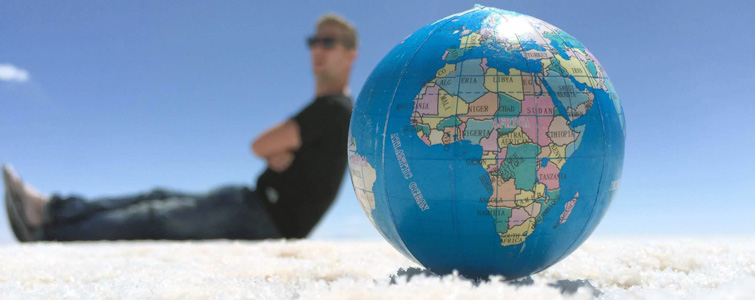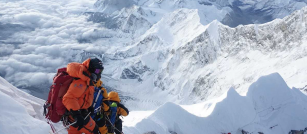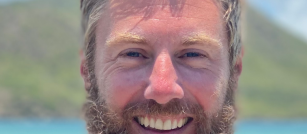
Thinking about taking up scuba diving? Here is everything you need to know.
1. Select a scuba diving school that is reputable
When you want to learn how to scuba dive, choosing the right school is the best thing to do. You might be surprised by how many schools are here today and gone tomorrow, and they are only interested in taking your money. With some research, you can locate the best place to scuba dive with a school with a great reputation and accreditations from organizations such as PADI.
Something else to consider when choosing a dive center or school is the experience of the dive instructor. Those instructors should have been teaching others how to scuba dive long enough to be skilled at it. They should also have their scuba certifications to work with all student levels. Take a look at the safety record of the school or dive center.
2. Work on your physical condition
One thing you will learn about scuba diving is that it demands a lot of physical strength. You shouldn’t get started if you aren’t in good physical shape.
Cardiovascular exercise is a great way to start preparing for scuba diving. Strength training should also be included in the mix.
Running, swimming, and biking are good exercises to get started. They will prepare you for the endurance necessary to scuba dive. Strengthening your back, chest, shoulders, and abdominal muscles can be done with strength training.
After completing any exercises, always stretch to finish things out. Stretching keeps your body limber and reduces the possibility that you will experience a dive injury.
3. Start with the basics
Don’t be overly concerned with understanding the basics about scuba diving. It really isn’t that difficult. You can get started as long as you know the primary factors for good scuba diving.
The equipment is one of the first things you should understand when scuba diving. You will need your buoyancy control device (BCD), dive mask, tank, weight belt, fins, and regulator. After you know about the equipment, you must learn how to use it. A fundamental class on scuba diving can be used for that purpose. You can also learn by watching online videos.
Finally, go to a pool or perhaps a lake and get used to wearing the equipment when you are in the water. Some people will do so in a pool, wearing scuba equipment and learning to breathe underwater while swimming slowly. It never hurts to have a guide with you during this time, but after you master the basics and are comfortable, you can get started on a real dive.
4. Experience Matters
After you figure out the basics, gaining some practical experience is the next step to take.
If you use a scuba diving school, you will likely be introduced to the water in an introductory dive. It will allow you to attempt a dive without spending much time and money on the process. If you are still deciding if diving is the right choice, this is the way to start.
5. Get your certification
It’s essential to receive your scuba diver certification, and there are several avenues to choose from. A typical way to get your certification is to take a course for Open Water Diver. You will have to take some classes, train in a swimming pool, and go on four open diving expeditions.
A scuba diver course is another option that is typically less expensive than the open water diver course. Going through the scuba diver course involves two sessions in the classroom and two dives in a swimming pool. After completing this course, you can go down 12 m with your certification.
Do you already have some diving experience? If so, the advanced open water diver course may be your option. This course allows you to go down 30 m in depth. You will also learn much about the diving equipment and safety necessary to start.
6. Make Sure the Gear Fits
Don’t simply grab the first gear that you find. You must ensure that it fits well to get started. If you have fins or a mask that does not fit properly, you may have a difficult time diving. It is likely to be an uncomfortable experience.
Use these tips to find the proper gear:
Try several different sizes of wetsuits and check the different styles. The suit should not be too loose, but it should not be too tight.
When choosing your buoyancy control device, make sure that it fits properly. It would be good to try some different styles and sizes to see what works best for you.
Your scuba diving mask is an essential part of your gear. Look at different styles and sizes and try them to find the one that best fits your face.
You might be surprised by how much the tanks and BCs weigh. You can test them out beforehand because you want to be comfortable with the weight when you go on your first dive or two.
You want to stay as safe as possible and be comfortable while going on a dive. When you choose the right gear and follow our tips, you will find that everything goes smoothly.
7. Prepare yourself emotionally and mentally
There is nothing quite like the experience of scuba diving, but remember the risks involved. Before getting started, prepare yourself emotionally and mentally for what you might experience when you go under the water. Consider these tips to help you prepare:
In the first place, research is essential. Give yourself a good education about scuba diving to understand the risks and safety factors that will allow you to participate in the sport and enjoy it.
Another factor is the understanding of your limitation and abilities. It would be best if you were comfortable with your fitness level and knowledge about scuba diving before jumping in.
As a final point, always expect the unexpected. Nothing is ever quite like you would imagine, and when you are underwater, you may not get a warning before conditions change. Always remain alert! If you have trepidations about going under the water, stop short of doing so.
8. Work with your limitations
As a beginner scuba diver, you should not push yourself beyond your comfort level. Remember this fact because it can save your life.
Many people starting with scuba diving try to do too much before they are ready.
You can experience a lousy dive when you push yourself because you are fatigued. Rather than allowing this to happen, pay attention to your hydration and give yourself time to overcome seasickness. Your body will need to adjust to the environment underwater. As you continue to progress, you can try more challenging areas.
9. Pay attention to your surroundings
Never forget that a scuba diver just getting started is not always aware of what is taking place. Pay attention to what is going on around you at all times.
If you have other divers with you, pay attention to where they are. Look for any obstacles or hazards that are around you. Know your limitations and abilities, and stay within your comfort level.
As you get more experience under your belt, you will find deeper dives and new areas to be enjoyable. Perhaps you may even try diving on a coral reef, such as the Great Barrier Reef. As long as you are aware of what is taking place in your area and remain safe, you can enjoy the dive.
10. Enjoy yourself
Remember that diving is an enjoyable hobby. Allow yourself to enjoy it and relax with some friends while on your scuba diving excursion.
Look around at what is underneath the water and take lots of pictures to remember the details.
When you pay attention to these tips on scuba diving, your experience will be a much better one. Have a friend with you as a dive buddy, and always within your limitations. Pay attention to any safety tips that are provided for you by the dive master or your instructor.
It doesn’t matter if you are just getting started or have been scuba diving for a long time. These tips can make a difference when you are under the water. Please have a safe dive and enjoy it!
Remember, never travel without travel insurance! And never overpay for travel insurance!
I use HeyMondo. You get INSTANT quotes. Super cheap, they actually pay out, AND they cover almost everywhere, where most insurance companies don't (even places like Central African Republic etc!). You can sign-up here. PS You even get 5% off if you use MY LINK! You can even sign up if you're already overseas and traveling, pretty cool.
Also, if you want to start a blog...I CAN HELP YOU!
Also, if you want to start a blog, and start to change your life, I'd love to help you! Email me on johnny@onestep4ward.com. In the meantime, check out my super easy blog post on how to start a travel blog in under 30 minutes, here! And if you just want to get cracking, use BlueHost at a discount, through me.
Also, (if you're like me, and awful with tech-stuff) email me and my team can get a blog up and running for you, designed and everything, for $699 - email johnny@onestep4ward.com to get started.
Do you work remotely? Are you a digital nomad/blogger etc? You need to be insured too.
I use SafetyWing for my digital nomad insurance. It covers me while I live overseas. It's just $10 a week, and it's amazing! No upfront fees, you just pay week by week, and you can sign up just for a week if you want, then switch it off and on whenever. You can read my review here, and you can sign-up here!













 As you know, blogging changed my life. I left Ireland broke, with no plan, with just a one-way ticket to Thailand
and no money. Since then, I started a blog, then a digital media company, I've made
more than $1,500,000 USD, bought 4 properties and visited (almost) every country in the world. And I did it all from my laptop as I
travel the world and live my dream. I talk about how I did it, and how you can do it too, in my COMPLETELY FREE
Ebook, all 20,000
words or so. Just finish the process by putting in your email below and I'll mail it right out to you immediately. No spam ever too, I promise!
As you know, blogging changed my life. I left Ireland broke, with no plan, with just a one-way ticket to Thailand
and no money. Since then, I started a blog, then a digital media company, I've made
more than $1,500,000 USD, bought 4 properties and visited (almost) every country in the world. And I did it all from my laptop as I
travel the world and live my dream. I talk about how I did it, and how you can do it too, in my COMPLETELY FREE
Ebook, all 20,000
words or so. Just finish the process by putting in your email below and I'll mail it right out to you immediately. No spam ever too, I promise!
